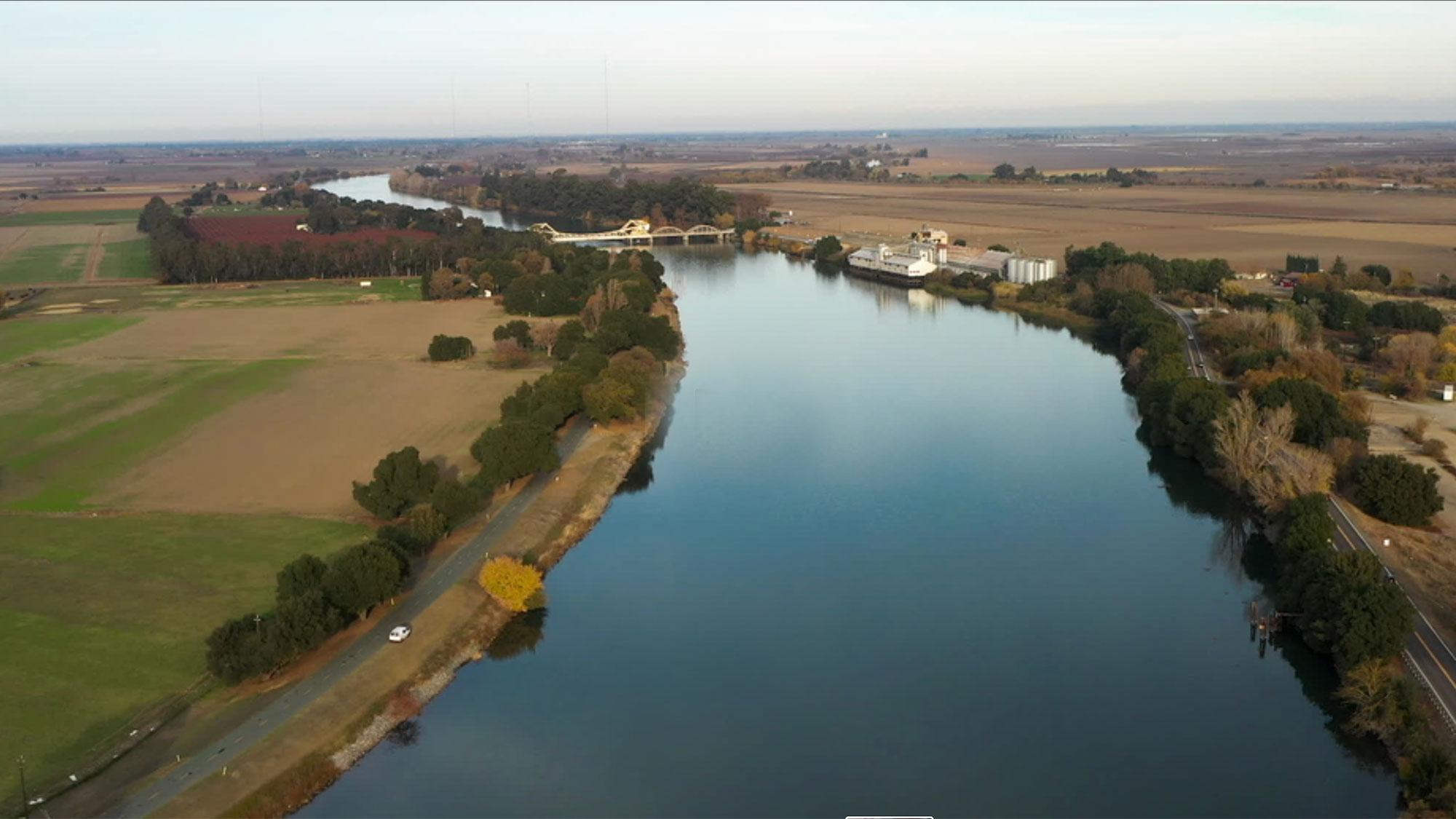Flood insurance is a safety net people hope never to need. But the net is full of holes, and hope is unreliable. When payments do come, they’re often too little and too late, especially for renters and lower-income communities.
Residents of the Sacramento River community of Isleton, California, are no strangers to flooding. The town has flooded five times since its founding in 1874. Now, Isleton is working with researchers at the University of California, Davis, to pioneer a new strategy: community-based flood insurance. It’s designed to provide fast, flexible dollars immediately after a flood while investing in the area’s flood and financial resilience.
Only one other, drastically different, place has tried it: New York City, with 10,000 times as many residents as Isleton’s 850. Other communities, from Pajaro, California, to New Orleans and Washington, D.C., have also expressed interest.
“I'm optimistic that this could be a catalyst throughout the United States,” said Kathleen Schaefer, who initiated the Isleton program as a UC Davis Ph.D. candidate of civil and environmental engineering. “Isleton is one of the first. But if we’re successful, it certainly will not be the last.”
The idea comes at a time when flood and climate risk is rising across the nation. Last year had the highest number of billion-dollar weather disasters in U.S history. Recent localized flooding in California highlighted an uncomfortable truth: While millions of households in the state are at risk of flooding, fewer than 2% of Californians have flood insurance.
Climate change, wildfires, atmospheric rivers, sea level rise and aging levees are prompting some in the insurance industry to wonder out loud if we’re headed toward an uninsurable future.
‘You have to leave’
When 9-year-old Pam Bulahan woke up on the morning of June 21, 1972, she was looking forward to a day of swimming lessons in nearby Rio Vista. But the Sacramento River, held back from her town of Isleton by a 30-foot levee wall, had other plans.
A neighbor’s voice followed a sharp knock on the door: “Hey, the levee broke at Spindrift last night. You have to leave!”
Bulahan, now mayor of Isleton, remembers her mom, a cannery worker and former teacher with a knack for keeping calm in a crisis, throwing drawers of clothes on the bed. The family grabbed a few things and piled into their car. They drove to a staging area overlooking the river and waited to see what would happen next.
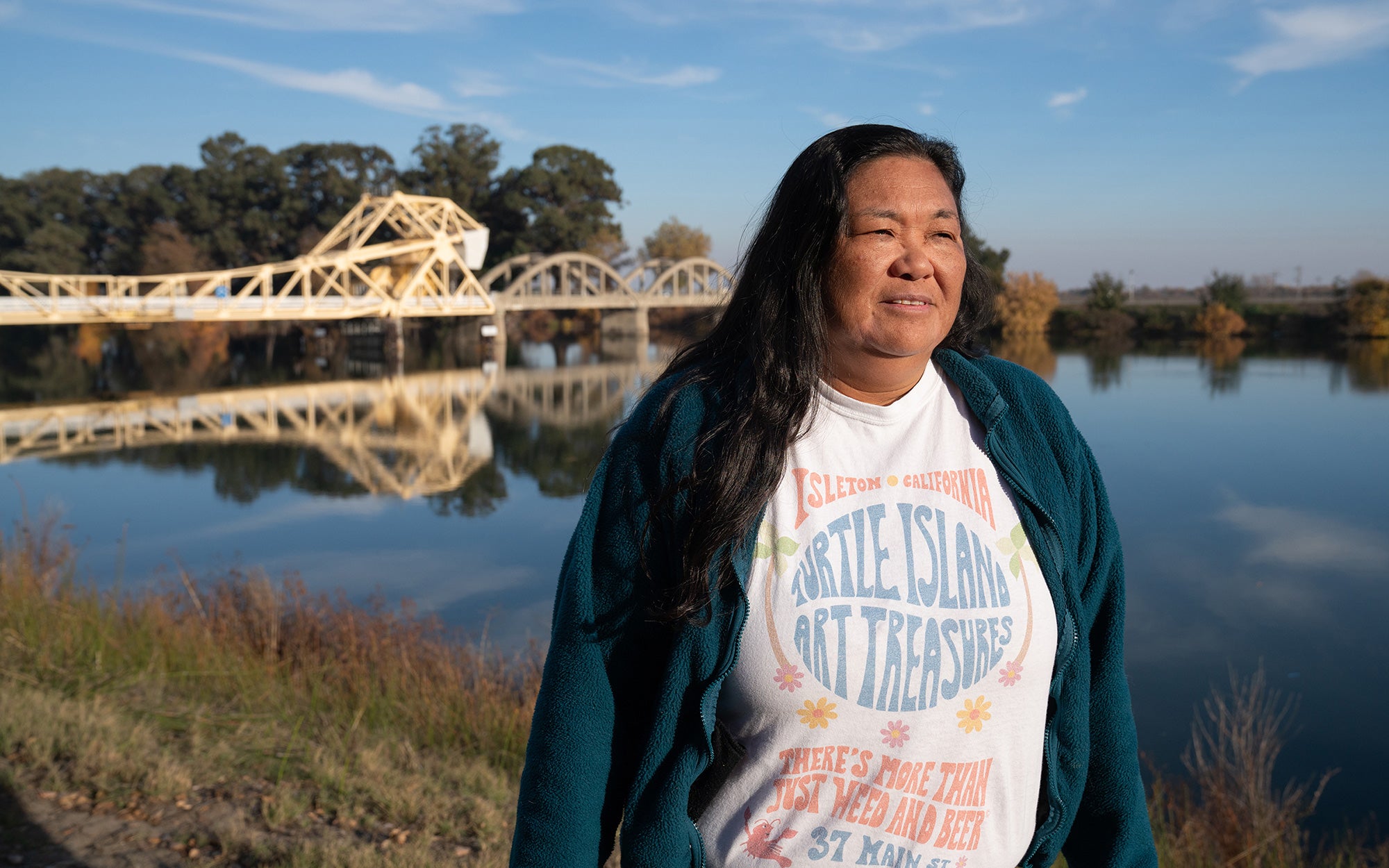
“I’m in the car alone,” Bulahan remembered. “My mom, dad and younger brother are walking around. And I’m just watching this water creep across the land. I’m like, ‘This is not good. Those houses are gone.’”
They soon got word that a dike erected to hold back the floodwaters didn’t hold. They had 15 minutes to get home, retrieve their things and get out. They evacuated, along with about 2,000 of their neighbors. They didn’t move back until two years later.
The first days, weeks and months after the flood were spent with nearby family members — an uncle’s duplex in Thornton, a coworker’s home in Tyler Island. Bulahan’s parents didn’t have flood insurance, but they secured a small-business loan to help repair and elevate their house, which had been inundated with 5 feet of water.
“We were lucky we had several folks helping us,” she said.
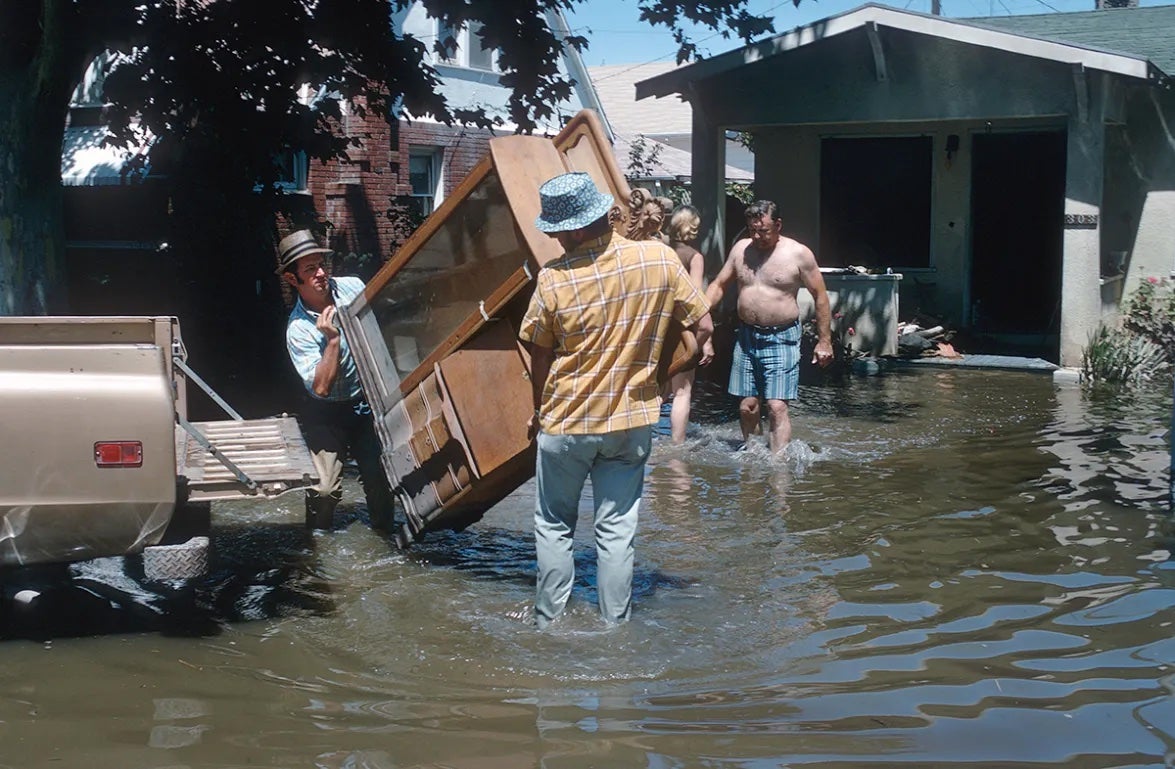
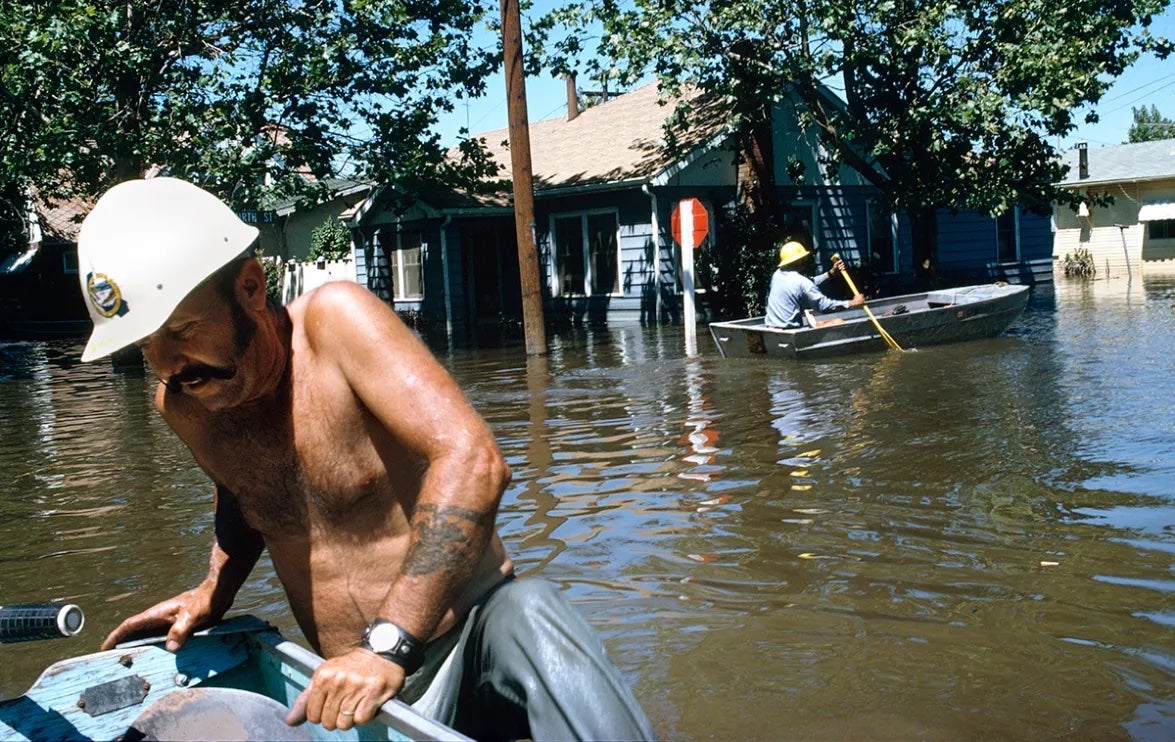
The economic impact of flood insurance gaps
Bulahan’s family was lucky, relative to some. They had a support system: family to stay with, friends to help, and financial assistance to access. But for many people with low to moderate incomes, the first days and weeks after a catastrophic flood leave people struggling to keep their heads above water in more ways than one.
Natural hazards are unnervingly adept at exposing social and economic disparities. Lower-income households are often the first to flood and the least likely to have flood insurance. Even those who have it often can’t access it quickly enough.
For example, a UC Merced study following the January 2023 flood of Planada, California, found that 83% of residents experienced economic losses. Many fell behind on rent, mortgage and car payments, and missed days of work. Planada is home to a large number of noncitizens, and 64% of the people whose property was damaged by floodwaters were not even eligible for federal disaster aid.
“Most people weren’t seeing money from aid, insurance or loans for weeks and even months after a disaster.” — Carolyn Kousky, Environmental Defense Fund
“Evacuation costs, the home and its contents, the car, mucking out debris, renting generators — those expenses start right away,” said Carolyn Kousky of the Environmental Defense Fund. Partnering with the nonprofit Center for NYC Neighborhoods, she helped launch the nation’s first community-based flood insurance program — or inclusive insurance — in 2023.
“Most people weren’t seeing money from aid, insurance or loans for weeks and even months after a disaster,” Kousky said. “The more affluent run up their credit cards, get loans, and it’s not as big of a deal. But for low-income people, it’s a very big deal.”
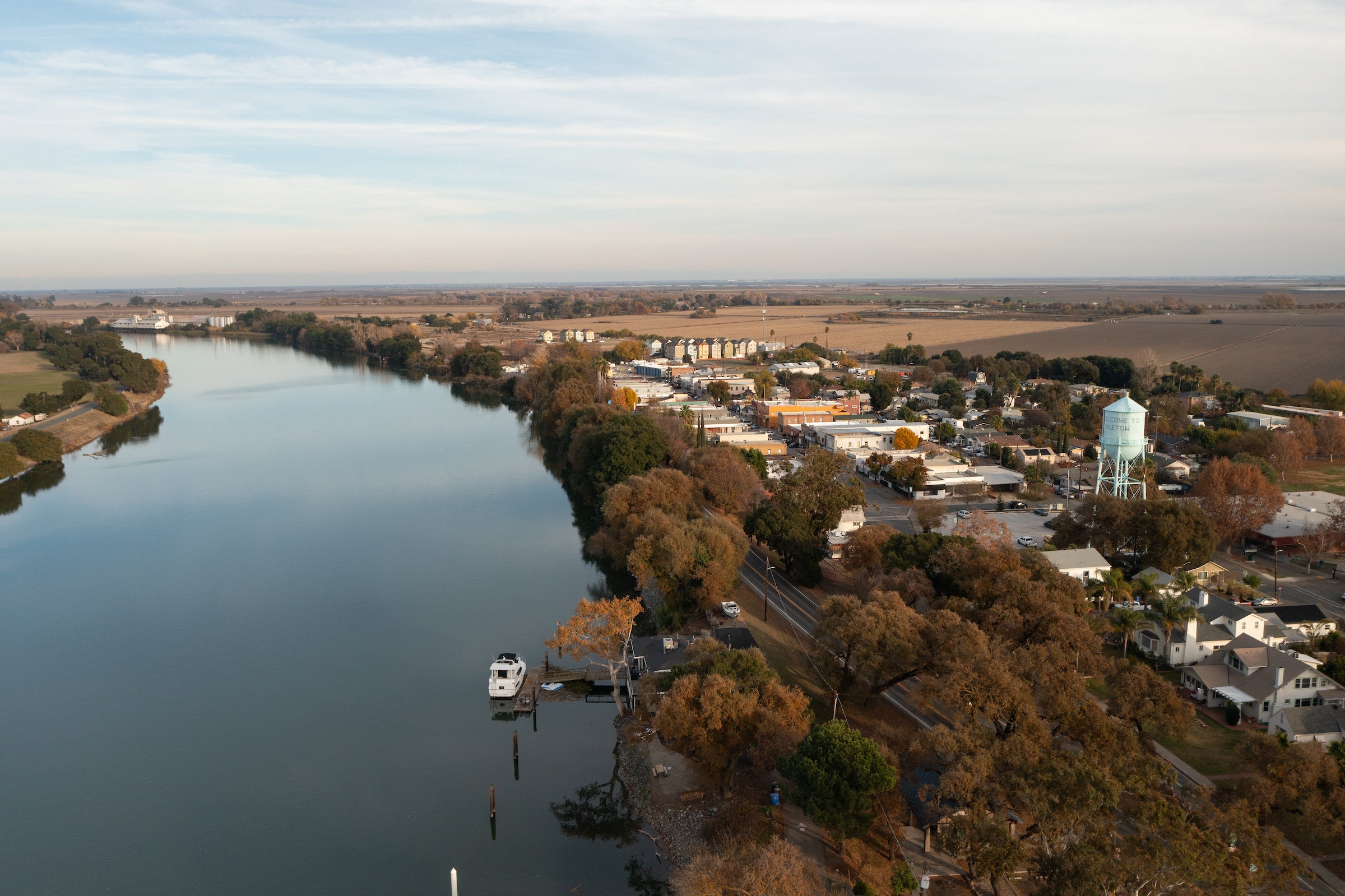
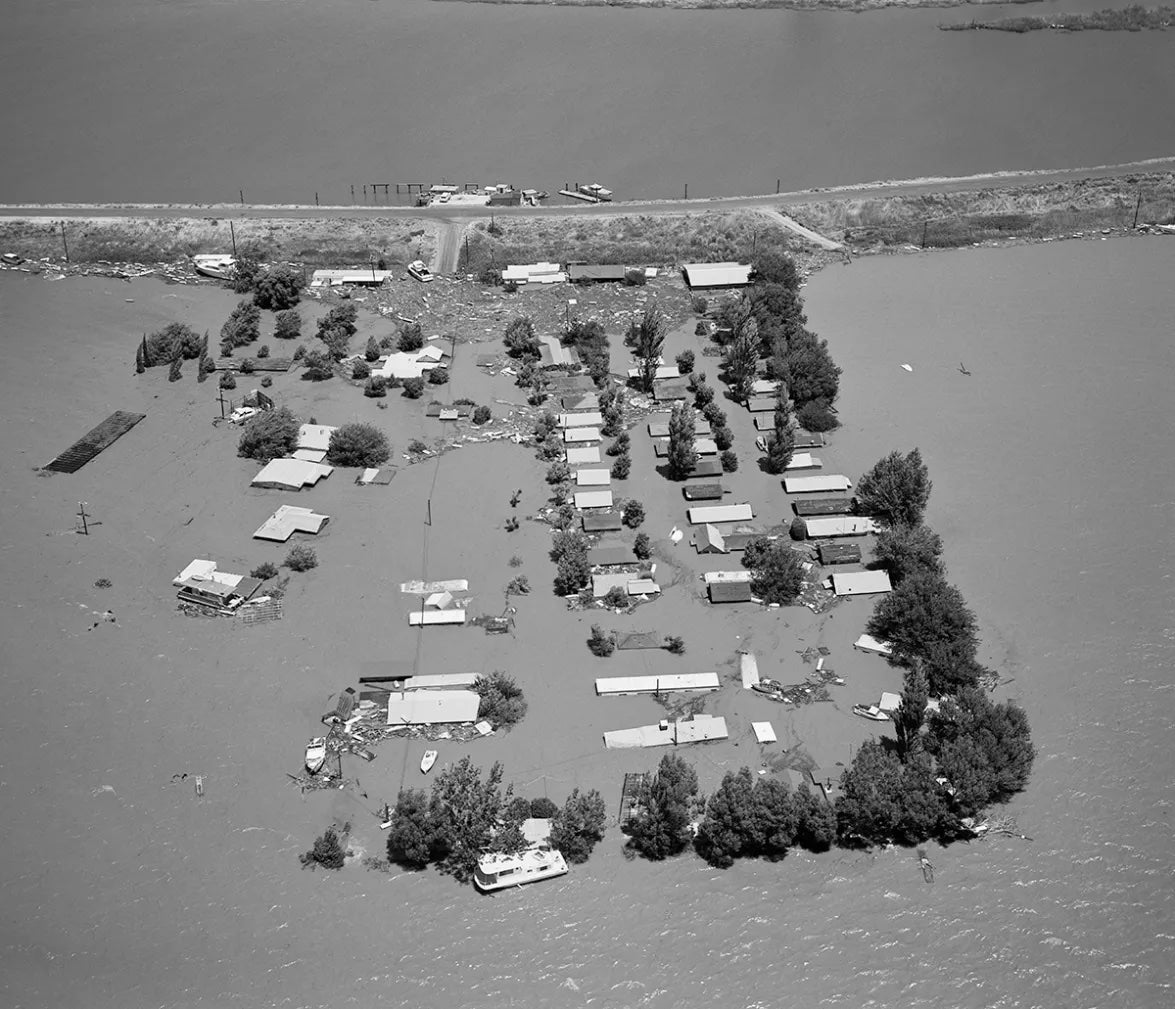
Immediate needs
Settled by Chinese and Japanese immigrants in the late 1800s, Isleton has lovely river views, friendly people, quiet streets, colorful architecture and delicious pizza, beer and coffee.
Just a few feet above sea level, it’s also among Sacramento County’s poorest communities and one of its most flood-prone. Considered “disadvantaged” by the state, Isleton’s poverty rate is around 32% with a median household income of about $52,000, compared to $84,000 countywide.
Isleton is one of the first. But if we’re successful, it certainly will not be the last.” – Kathleen Schaefer, UC Davis
Straddling the Sacramento River in the fertile Delta, the whole town is in a flood zone, yet just over half of residents carry flood insurance. Those who have it, pay about 30% more than their neighbors in West Sacramento or Natomas. That’s largely because Isleton lacks the resources and personnel to participate in Federal Emergency Management Agency’s Community Rating System or to fund the levee improvements that would lower premiums.
In a town with no police department, no outdoor warning siren and a problematic wastewater treatment plant, pre-disaster recovery planning can take a back burner to more immediate needs, despite the river at their backs.
“If that levee fails, portions of the town would be inundated by about 8 feet of water,” said Schaefer.
Proactive flood risk management
Whenever Schaefer walks into an establishment in Isleton, she does a quick mental survey of how high she expects the water to rise in the place if the levee fails. Sitting over a plate of pizza steaming with artichoke hearts and cheese at Manny’s Barzerria, she holds her hand just over the tabletop and wagers about 5 feet.
Schaefer saw communities fall through the cracks time and again during the eight years she spent as an engineer with FEMA, which oversees the National Flood Insurance Program. At a time when some might consider retirement, she decided to go back to school at UC Davis to investigate ways to help flood-prone communities manage and buy down their flood risk.
“Everyone talks about the fact that there are two kinds of levees, those that have failed and those that will fail,” she said. “So why are we not having a conversation about how to rebuild your community after the flood happens?”
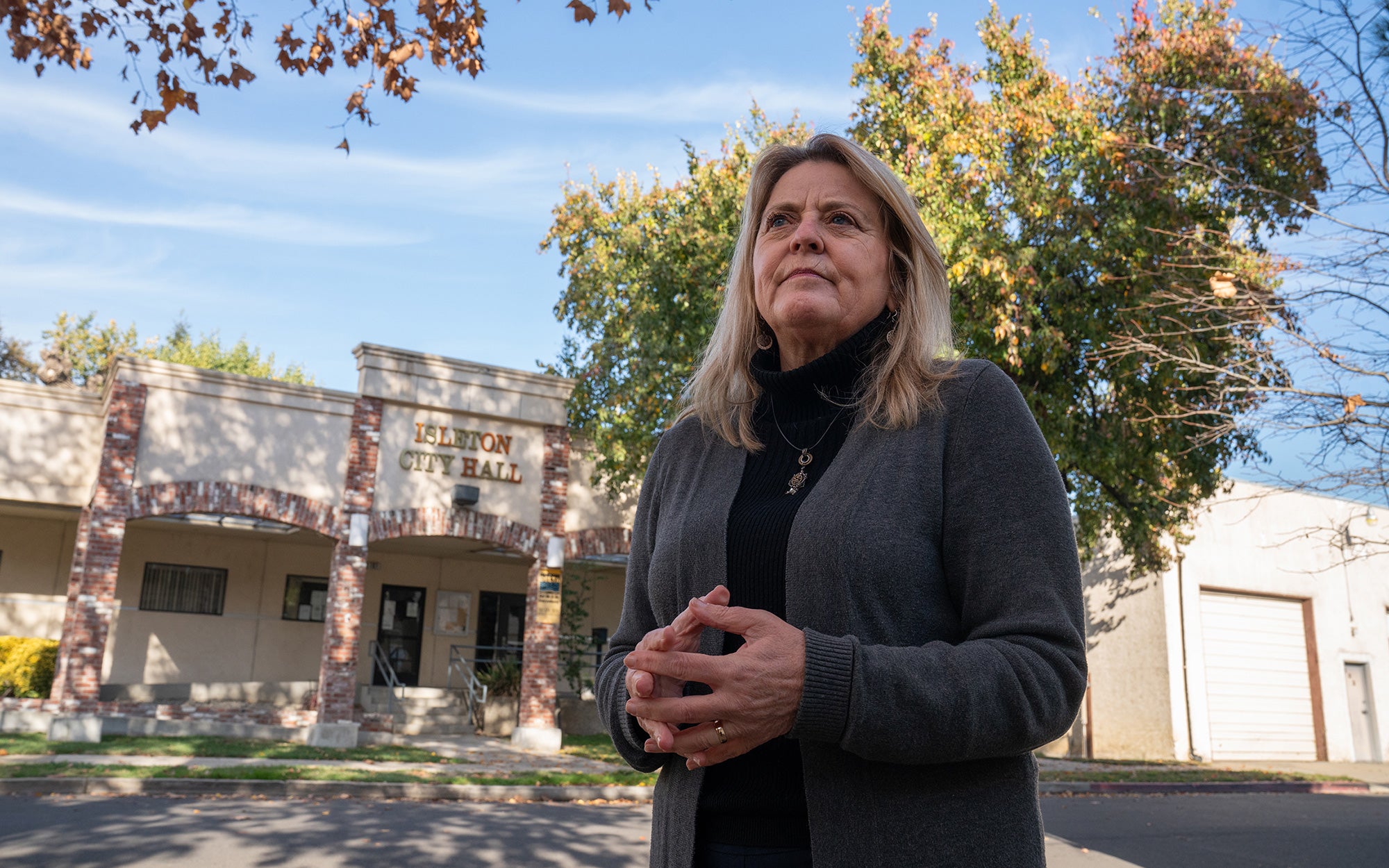
In welcome news, FEMA recently revamped its flood insurance program to bring disaster aid more quickly to affected communities, yet governance gaps remain throughout the system.
“There’s no entity whose job it is to say — before a disaster happens — ‘We’re going to plan for the recovery of Isleton,’” Schaefer said.
Except now, with her help, there is someone.
After six years spent researching alternatives to FEMA’s National Flood Insurance Program, Schaefer secured a grant from the California Office of Emergency Services to fund a full-time resilience and recovery coordinator for Isleton for two years. The position, which is in the process of being filled, is dedicated to helping Isleton better manage its flood risk and implement a community-based flood insurance program.
“Your community connections make a difference,” Schaefer said.
What is community flood insurance?
Community-based flood insurance: It’s not a technological solution. You can’t build it with your hands or plant it in the ground. It’s not sexy in the least. It’s administrative. It’s paperwork and community meetings. It’s insurance. It’s people. And it could be the difference between circling the drain or staying afloat.
Community-based flood insurance: It’s not a technological solution. You can’t build it with your hands or plant it in the ground. It’s not sexy in the least. It’s administrative. It’s paperwork and community meetings. It’s insurance. It’s people.
Community-based flood insurance is a single policy, purchased by a local governmental or community intermediary — like a nonprofit, homeowners association or community group — to cover a group of designated properties. When a major flood occurs, it would trigger a predefined payment, such as $10,000, to cover immediate expenses. That alone could help make recovery for residents more equitable.
The program would also work to secure more affordable comprehensive flood insurance for residents. These efforts could simplify the process of setting premiums, which reduces administrative and claim-setting costs, and increase the number of insured households. The savings could be shared with property owners or used to fund flood-risk reduction projects in the community.
“It gives the community ownership of their flood risk and, importantly, the assets that come with it,” wrote Schaefer in a 2021 white paper.
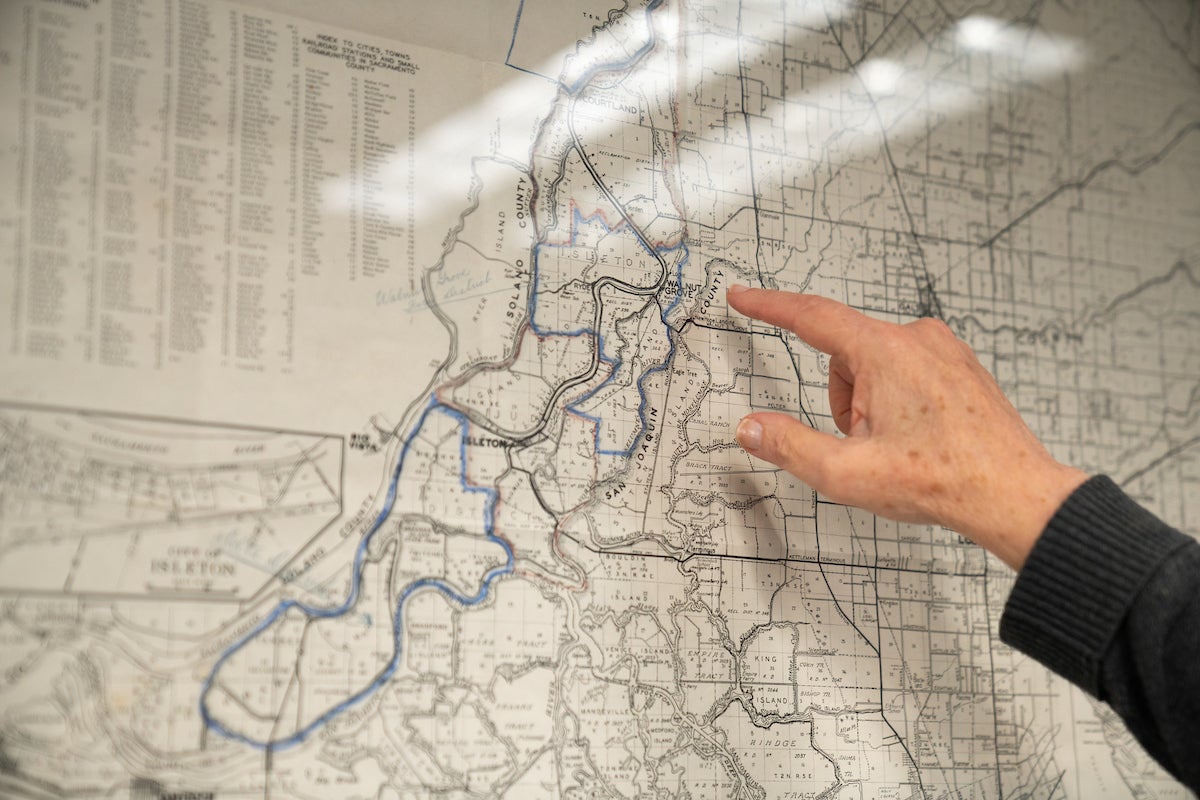
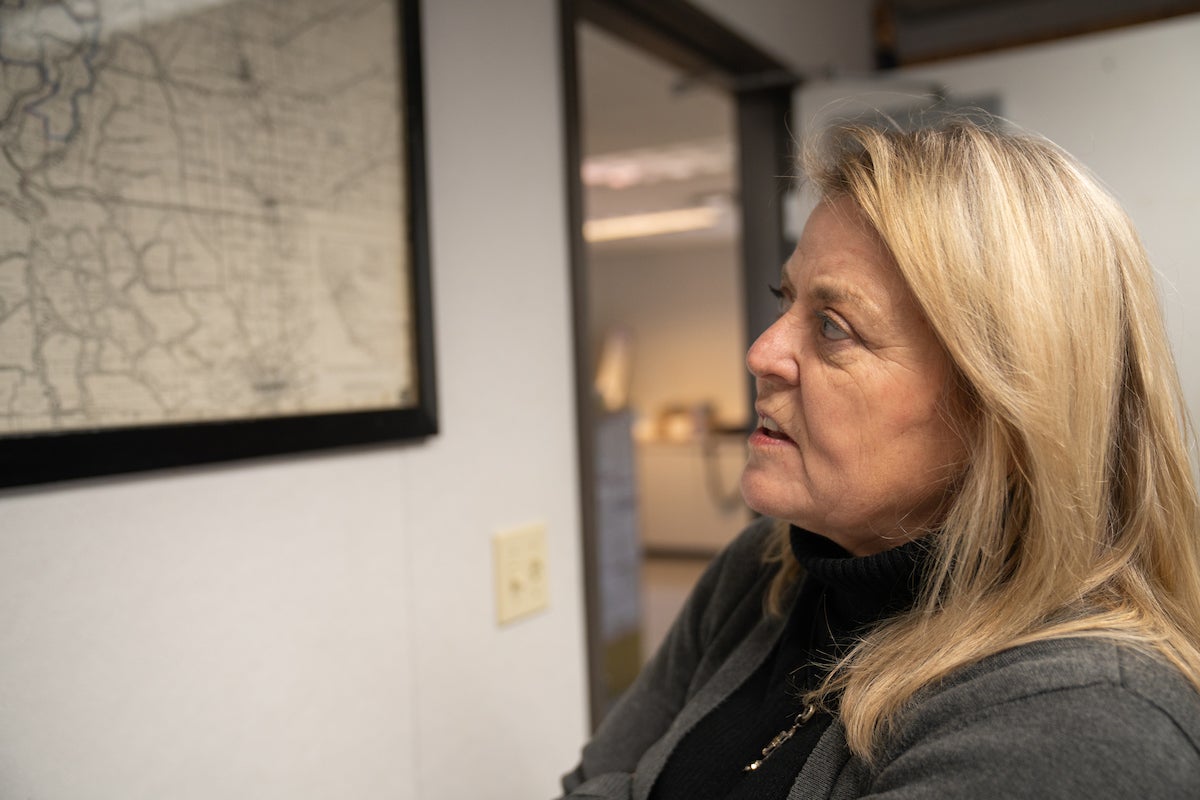
Between 1994 and 2015, Californians paid $3 billion more into the NFIP than they had received in claims payments, according to Professor Nicholas Pinter, Schaefer and the Natural Hazards Research and Mitigation Group at UC Davis. Those were “funds that could have been invested in risk-reduction, floodplain management, and reduced premiums,” they wrote. The group suggested the state explore a state flood insurance program, which shaped the concept of community-based flood insurance.
When, in 2021, Schaefer was looking for communities to pilot such a project, City Manager Chuck Bergson volunteered Isleton.
The city council authorized the creation of the Delta Region Geologic Hazard Abatement District, or GHAD, to serve as formal intermediary for a community-based insurance program. Its members include Mayor Bulahan, city councilmembers Iva Walton and David Kent, and community leader Jean Yokotobi.
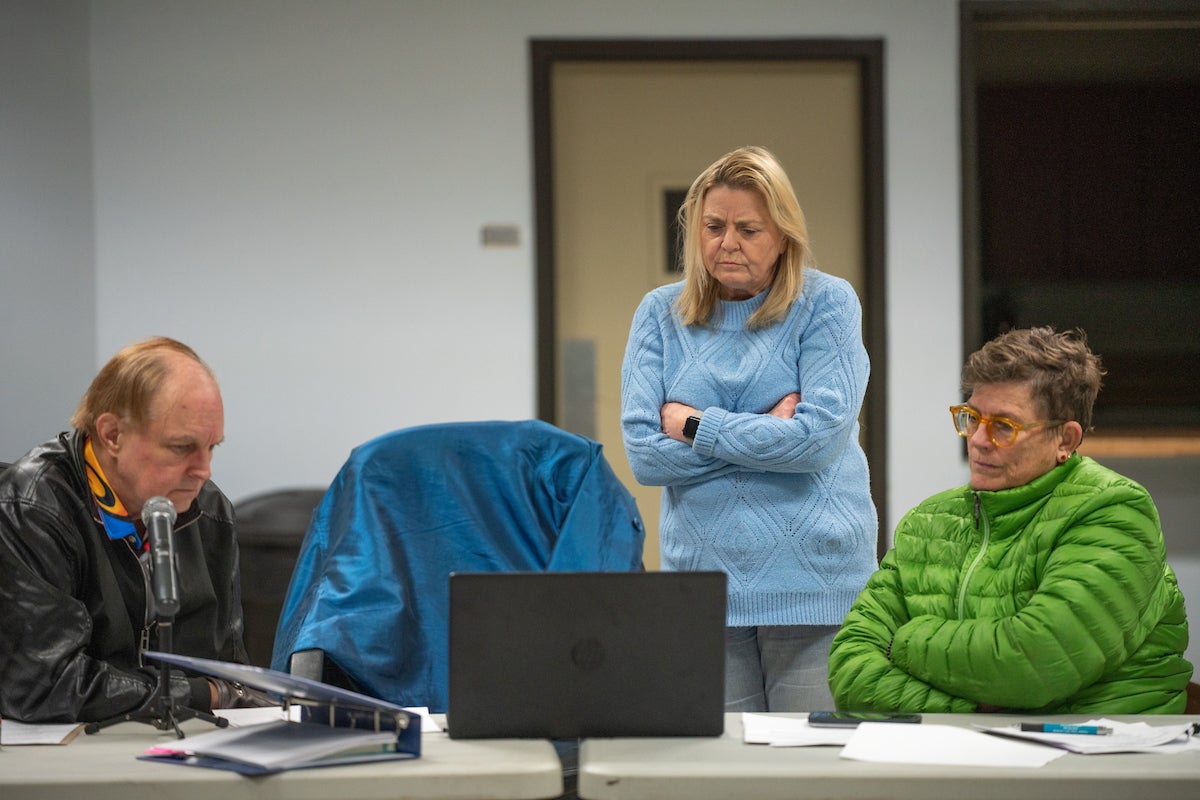
‘We have our backs’
Since transplanting here from Oakland and opening the Mei Wah Beer Room in Isleton’s historic district, Walton has been winning local affections.
For example, Schaefer mentions Walton’s name while having coffee at the local Java Jack’s, and the barista speaks up from across the room: “I don’t mean to be eavesdropping, but Iva’s amazing! She lets us hold our PTA meetings there at Mei Wah. She’s the best. She’s like, ‘Whatever you guys need. I’m here for the town.’”
The building that now houses the Mei Wah Beer Room was, at various moments in history, a Chinese gambling hall, a brothel and an opium den. Now, it’s a friendly, community gathering spot that serves up craft beers and warm chatter.
Surrounded by scarlet walls and artwork celebrating Isleton’s early Chinese history, Walton and Kent sit on barstools, describing their hopes for the community-based flood insurance program.
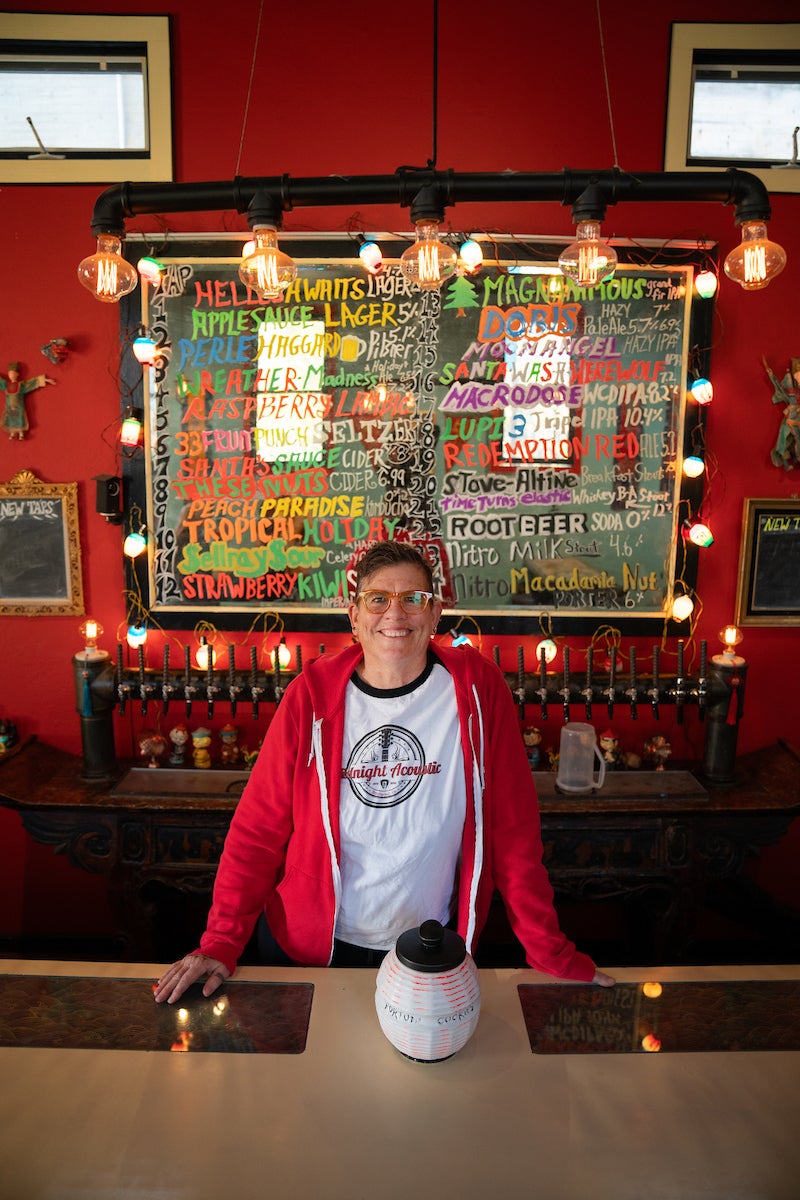
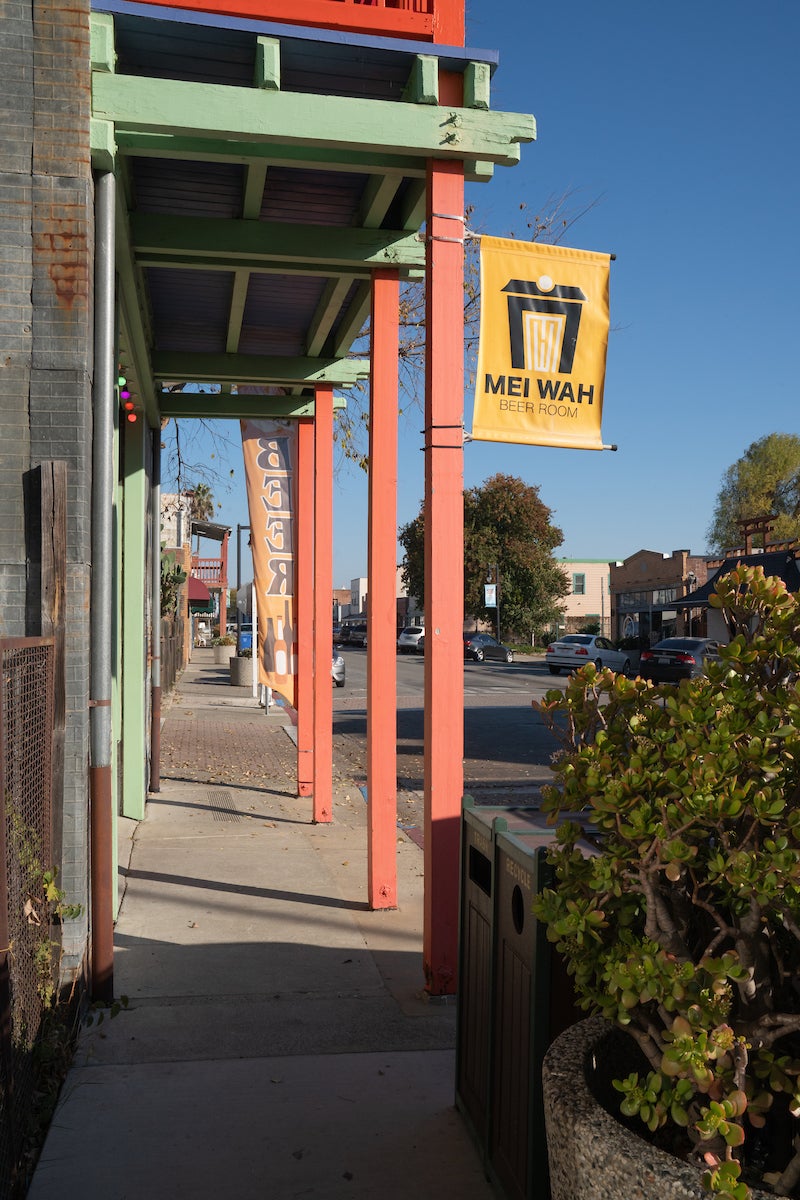
“We’re a bit isolated out here, so it seemed like another opportunity for us to take care of ourselves in a way that we haven’t before,” Walton said. “I love that we’re so small that everybody can have an impact on this little city.”
Kent points behind him, toward the direction of the river.
“This river right here going past Isleton is the No. 1 freshwater supply for the rest of the state,” he said. “So we are important, and we need to be treated accordingly. We want every resident that is affected by some sort of disaster like this to be compensated.”
“All of us matter,” Walton added. “Community really matters. We do have our backs, you know.”
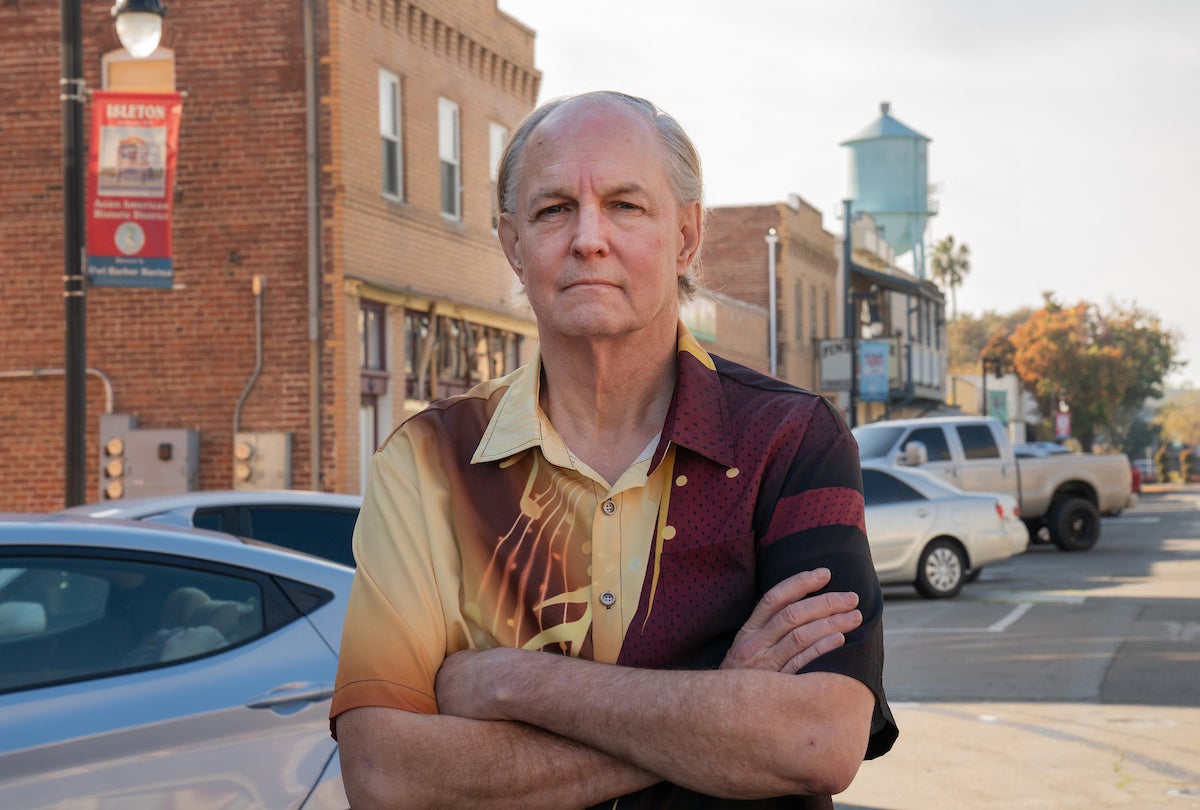
Making insurance a community investment
Last year, heavy storms fell across Sacramento and the coast, and snowmelt created major flooding in the Central Valley. As atmospheric rivers become more frequent and powerful, more flooding will likely occur in places without insurance, warned Michael Petersen, deputy commissioner of climate and sustainability for the California Department of Insurance during a November 2023 webinar.
“We’re seeing increased climate change risks and untapped potential for reducing those risks,” he said. “The first goal is to reduce greenhouse gas emissions in every sector of the economy. Second is closing protection gaps for vulnerable communities. … What can we do at a community level to make insurance more affordable?”
The California Department of Insurance and the Natural Resource Agency have voiced support for alternatives to the NFIP that help close protection gaps for communities.
Schaefer’s project offers a solution. She referred to billionaire investor Warren Buffett’s thoughts on the concept of “float” when he said: “Insurers receive premiums upfront and pay claims later. ... This collect-now, pay-later model leaves us holding large sums — money we call ‘float’ — that will eventually go to others. Meanwhile, we get to invest this float for Berkshire’s benefit.”
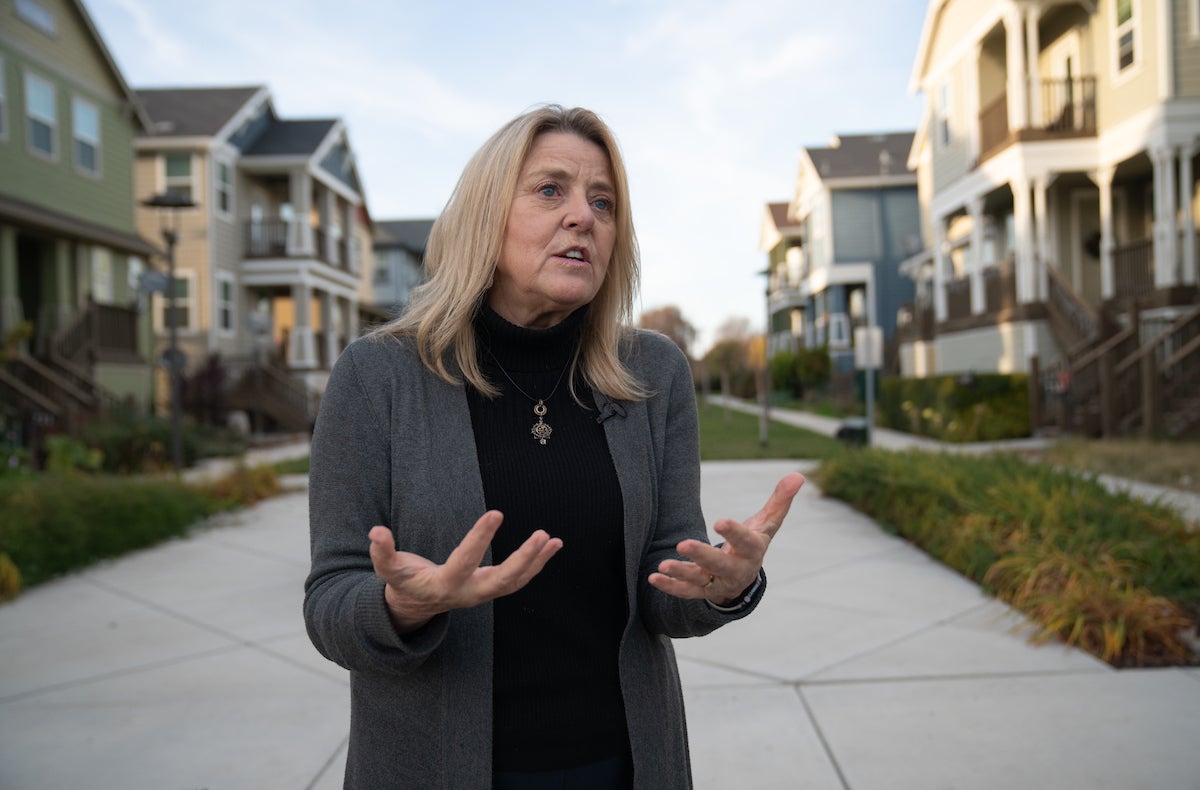
“If it works for Berkshire Hathaway,” she wondered, “can we make it work for us with community-based flood insurance? With climate change, we’re going to have longer periods of drought. We know that. I’m advocating that we use those longer periods of drought to build up our reserves and to build up our ‘float.’”
Community-minded
Back at the bridge, Mayor Bulahan is overlooking the river with Schaefer, recounting that scared little girl she was when the floodwaters crawled over the land all those years ago — a sight she hopes never to see again.
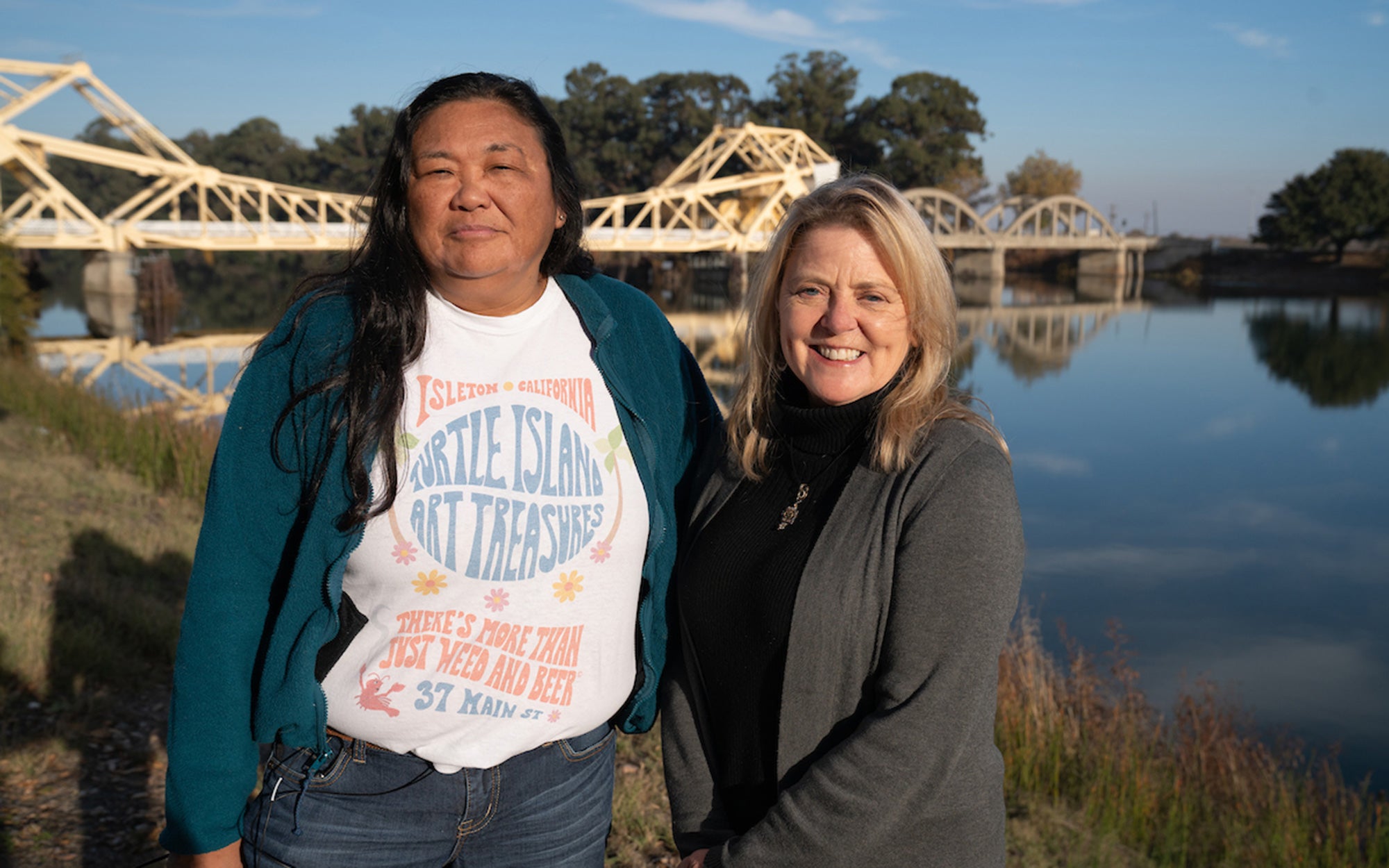
Bulahan spent her morning at her government day job in Sacramento, her afternoon tending her friend’s store in downtown Isleton, and after our interview, is off to get groceries for another friend. This is her community. She hopes their efforts to protect it pay off in safety, lower insurance premiums and peace of mind.
“You’ve got to try something,” said Bulahan. “You won’t know until you try.”
“But everyone wants someone else to be the first,” added Schaefer.
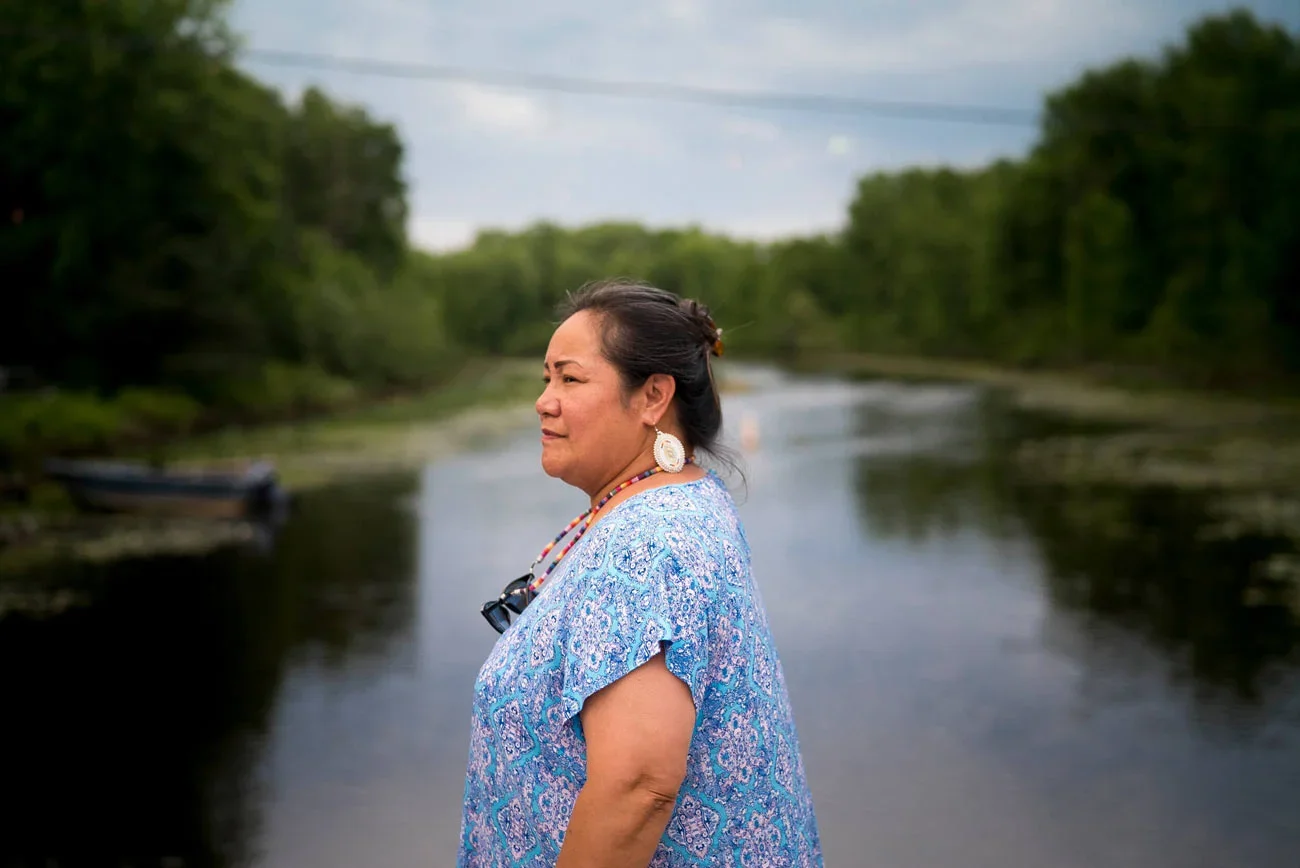
Related: Small Towns, Big Floodwaters
Two Midwestern towns share their stories of managed retreat, an extraordinary strategy to move their towns to escape rising waters and protect their communities from the current and future impacts of climate change.
Media Resources
Kat Kerlin, UC Davis News and Media Relations, 530-750-9195, kekerlin@ucdavis.edu
